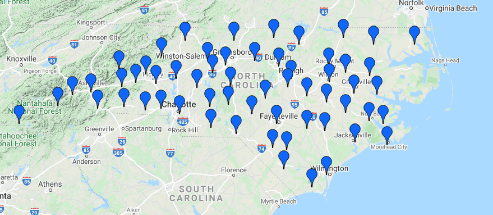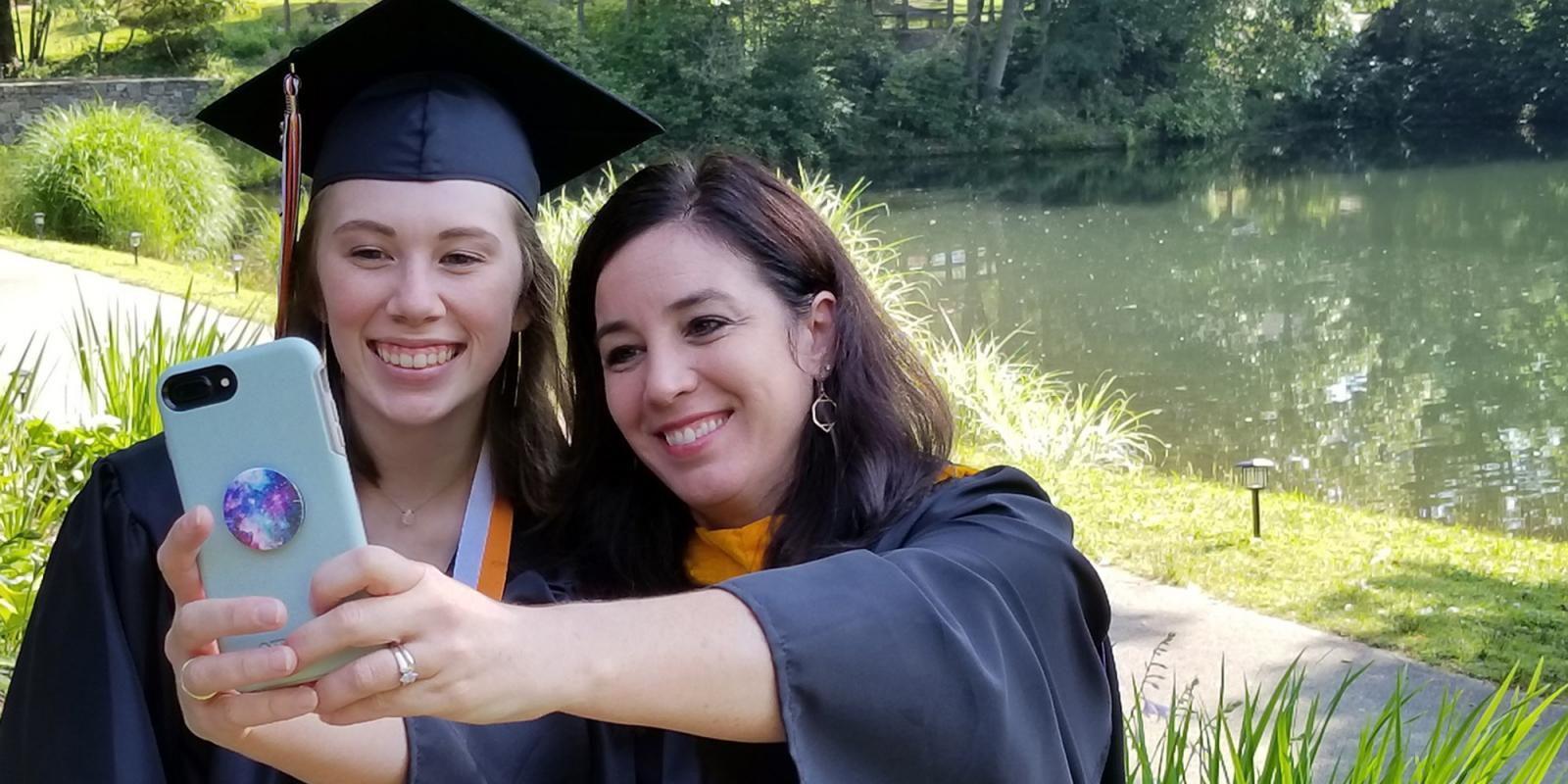Get your associate degree
If you already have your high school diploma or GED, you can earn your Associate in Arts in Teacher Preparation or Associate in Science in Teacher Preparation with North Carolina Community Colleges.
North Carolina Community Colleges will prepare you to finish your 4-year degree and start your teaching career. You can transfer your credits seamlessly to bachelor's degree educator preparation programs across the state (see below).
What two-year degree should I choose?
- Choose the Associate in Arts in Teacher Preparation if you’re interested in teaching elementary education, arts education, or other subjects in the humanities.
- Choose the Associate in Science in Teacher Preparation if you want to teach math, science, physical education, or other STEM subjects.
For more information about community college education options, click here.
If you’re a middle school or high school student interested in teaching, you can begin your journey with North Carolina’s Career and College Promise Program.
This program enables eligible high school students to complete courses at local community colleges, free of charge. Students in North Carolina early college high schools also take free community college courses through this program.
The credits you earn in this program count toward your associate degree in teacher preparation (see below). Associate programs transfer seamlessly to 4-year educator preparation programs across North Carolina.
What two-year degree should I choose?
- Choose the Career and College Promise Associate in Arts in Teacher Preparation If you want to teach elementary education, art education, or other subjects in the humanities.
- Choose the Career and College Promise Associate in Science in Teacher Preparation if you want to teach math, science, physical education, or other STEM subjects.
Am I eligible for Career and College Promise?
There are a few different ways to qualify for the program, but these are the most common.
You’re a high school junior or senior with one or more of the following:
- An unweighted total GPA of at least 2.8—that translates to an average grade around 80 ; OR
- Show college readiness in English, reading, and math on an exam such as the SAT; OR
- Have a recommendation from your high school principal or another person who the principal chooses. The recommendation should say why the school is substituting a recommendation for the GPA requirement.
Talk to your school counselor for more information.
Why community college?
Community college tuition is lower than tuition at 4-year universities. NC Community College students are also eligible for financial aid, including Pell grants, work-study loans and more.
And don’t forget, high school students who participate in North Carolina’s Career and College Promise Program can take NC Community College courses for free!
When you earn your Associate in Arts or Associate in Science from NC Community Colleges, your credits transfer to all public and most private 4-year universities in North Carolina.
For the Associate in Arts in Teacher Preparation or Associate in Science in Teacher Preparation programs, you can transfer directly in to the college of education at North Carolina Independent Colleges and Universities. Your credits transfer to UNC schools too!
For more information about college transfer opportunities, talk to your school’s academic advising office or read through North Carolina’s college transfer agreements.
Most North Carolinians live within a 30-minute drive of their nearest community college. With 58 colleges serving 100 counties, chances are there’s a community college near you, ready to help you become a teacher!
Find a college near you.

Use NC Community Colleges’ “Find a College” tool to see your options and find the campus that’s right for you!
Your questions, answered.
To teach in North Carolina, you’ll need a bachelor’s degree, and you’ll need to finish a state-approved teacher prep program. You’ll also need to pass licensing tests: These tests cover basic reading, writing and math skills, as well as knowledge about your subject area. You’ll also need to pass a background check.
In a teacher preparation program, you’ll take classes in teaching strategies, classroom skills and your future subject area and grade level. You’ll also get hands-on experience as a student teacher, working in a classroom with an experienced educator.
Your NC Community Colleges associate degree program will give you a well-rounded foundation, so you’ll excel when you transfer to a 4-year school.
Most people take four to five years to get their teaching license. During that time, you’ll finish your NC Community Colleges associate degree, your bachelor’s degree and student teaching.
You’ll need both your bachelor’s degree and student teaching experience, whether you’re teaching elementary, middle or high school.
Yes! If you get a bachelor’s degree in an area other than education (or your special subject area), there are alternative paths to get your teaching certificate. You’ll need to take any missing teacher prep coursework, finish your student teaching experience and pass your licensing exams. Look for a licensure-only or residency license program in North Carolina.
